JANA HAMBITZER
During a day-long symposium, part of the Freedom of Research: A European Summit – Science in Times of Uncertainty, speakers and panelists explored various aspects of freedom of research and the future of Europe in the context of ongoing global crises and conflicts.
“We should not think that freedom is self-evident. Freedom is at danger in every moment, and it is fragile”. With these cautioning words, Prof. Dr Thomas Prefi, Chairman of the Charlemagne Prize Foundation, welcomed the participants of the symposium on freedom of research, which took place at the forum M in the city center of Aachen on November 5, 2024.
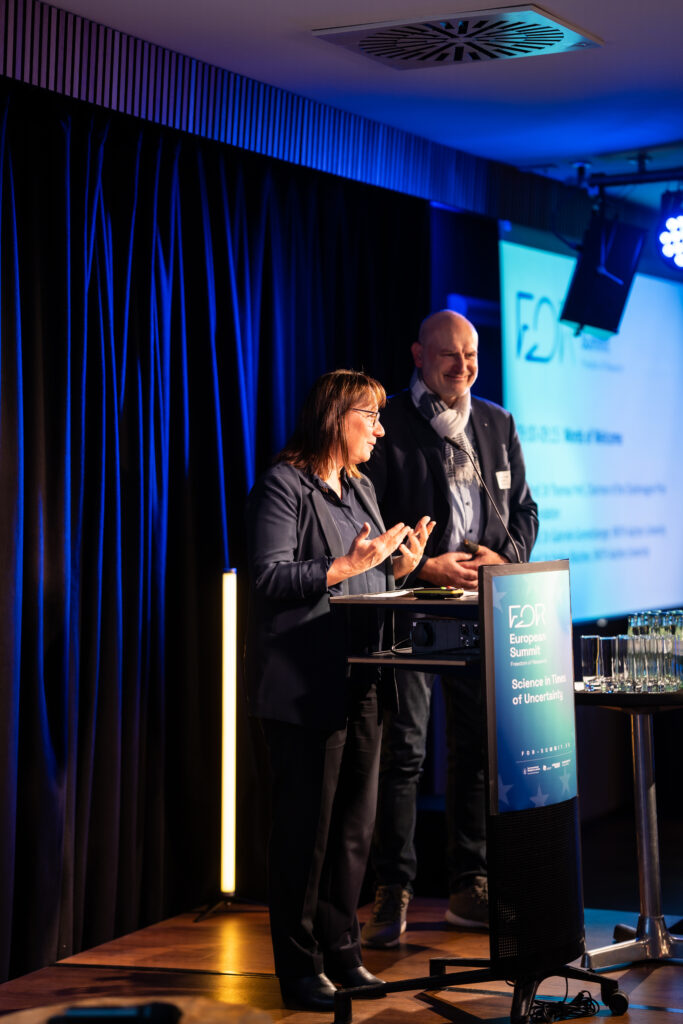
As part of the Freedom of Research: A European Summit – Research in Times of Uncertainty, the Foundation of the International Charlemagne Prize of Aachen, the Knowledge Hub and the Käte Hamburger Kolleg: Cultures of Research (c:o/re) of RWTH Aachen University jointly provided an interdisciplinary platform to discuss the crucial role of freedom in scientific, social and political contexts concerning the future of Europe with researchers, policymakers, business representatives and the public.
The aim was to critically explore different forms and practices of implementing freedom of research in line with European principles and in support of democratic governance and societal benefits. The thematic focus of the symposium was on dealing with the numerous complex crises of our time – from military conflicts to right-wing populism – as well as addressing challenges associated with new technologies such as AI and the metaverse.
Humanity and Collaboration in the Age of Emerging Technologies
The strategic importance of freedom in fostering innovation and maintaining democratic values in a globally competitive landscape was emphasized by Wibke Reincke, Senior Director and Head of Public Policy at Novo Nordisk, and Dr Jakob Greiner, Vice President of European Affairs at Deutsche Telekom AG. From an industry perspective, both speakers underscored the need for open societies that invest in innovation to ensure the continuity and growth of democratic principles.
The emergence of the metaverse and other cutting-edge technologies were discussed by Jennifer Baker, Reporter and EU Tech Influencer 2019, Elena Bascone, Charlemagne Prize Fellow 2023/24, Nadina Iacob, Digital Economy Consultant at the World Bank, and Rebekka Weiß, LL.M., Head of Regulatory Policy, Senior Manager Government Affairs, Microsoft Germany. The panelists pointed out the essential role of human-centered approaches and international collaboration in addressing the ethical and societal challenges associated with new technologies, and in shaping the metaverse according to European ideals.

The inherent tension between technological progress and the preservation of research freedom was highlighted by Prof. Dr Gabriele Gramelsberger, Director of the Käte Hamburger Kolleg: Cultures of Research (c:o/re), who raised the question of how AI is changing research. Prof. Dr Holger Hoos, Alexander von Humboldt Professor in AI and Executive Director of the AI Center at RWTH Aachen University, stated that publicly funded academic institutions must remain free from any influence of money and market pressure to foster cutting-edge research motivated solely by intellectual curiosity. Prof. Dr Benjamin Paaßen, Junior Professor for Knowledge Representation and Machine Learning at Bielefeld University, further argued that AI in research and education should only be used as a tool to complement human capabilities, rather than replace them.
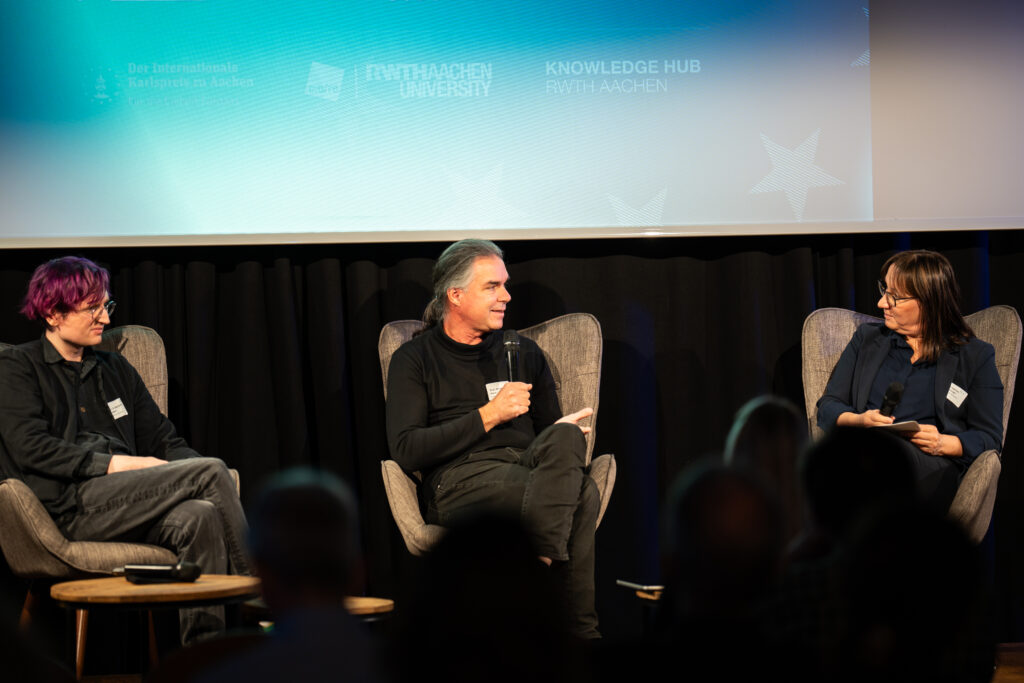
Conflicts over Academic Freedom and the Role of Universities
The de facto implementation of academic freedom worldwide was presented by Dr Lars Lott from the research project Academic Freedom Index at the Friedrich-Alexander-University Erlangen-Nuremberg. In a 50-year comparison, from 1973 to 2023, he illustrated a significant improvement of academic freedom in countries worldwide. However, looking from an individual perspective, the opposite is true: almost half of the world’s population lives in countries where academic freedom is severely restricted due to the rise of populist and authoritarian regimes.
Dr Dominik Brenner from the Central European University in Vienna reported firsthand on the forced relocation of the Central European University (CEU) from Budapest to Vienna and noted that such restrictions of academic freedom are an integral part of illiberal policies. Dr. Ece Cihan Ertem from the University of Vienna provided another example of increasing authoritarianism in academic institutions by discussing the suppression of academic freedom at Turkey’s Bogazici University by the government. Prof. Dr Carsten Reinhardt from Bielefeld University warned of the modern efforts in our societies to restrict academic freedom through fake news or alternative facts. From a historical perspective, these are fundamental attacks destroying the basis of truth finding, referring to similar developments during the Nazi regime in Germany.
Another pressing issue, the precariousness of academic employment in Germany, was highlighted by Dr Kristin Eichhorn from the University of Stuttgart and co-founder of the #IchBinHanna initiative, protesting against academic labor reforms that disadvantage early and mid-career researchers. She pointed out that the majority of faculty work on fixed-term contracts, which significantly restricts researchers’ ability to exercise their fundamental right to academic freedom due to tendencies to suppress both structural and intellectual criticism.
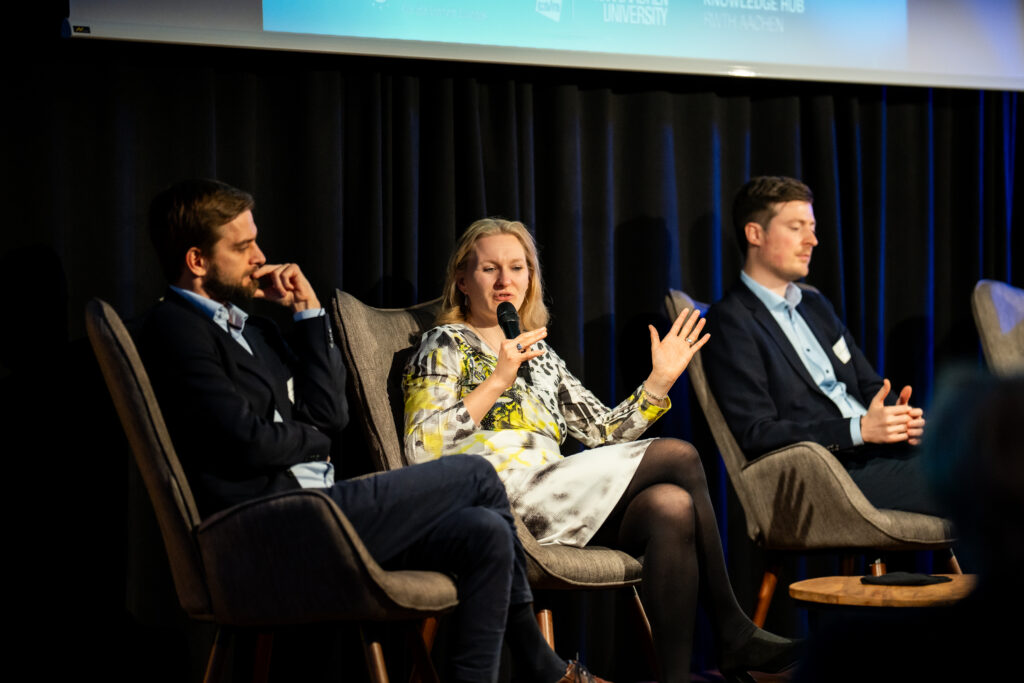
How to deal with these challenges? Prof. Dr Stefan Böschen, Director of the Käte Hamburger Kolleg: Cultures of Research (c:o/re), stressed that political assumptions and politically motivated conflicts can make academic discourse more difficult. However, it is important to foster dialogue once a common basis for discussion has been established. Frank Albrecht from the Alexander von Humboldt Foundation advocated for greater efforts in science diplomacy and the vital role of academic institutions in international relations. Miranda Loli from the Robert Schuman Center for Advanced Studies, the European University Institute in Florence, and Charlemagne Prize Fellow 2023/24, emphasized the need for universities to act as reflexive communities that engage critically with the processes that shape academic freedom while recognizing their potential as informal diplomatic actors.
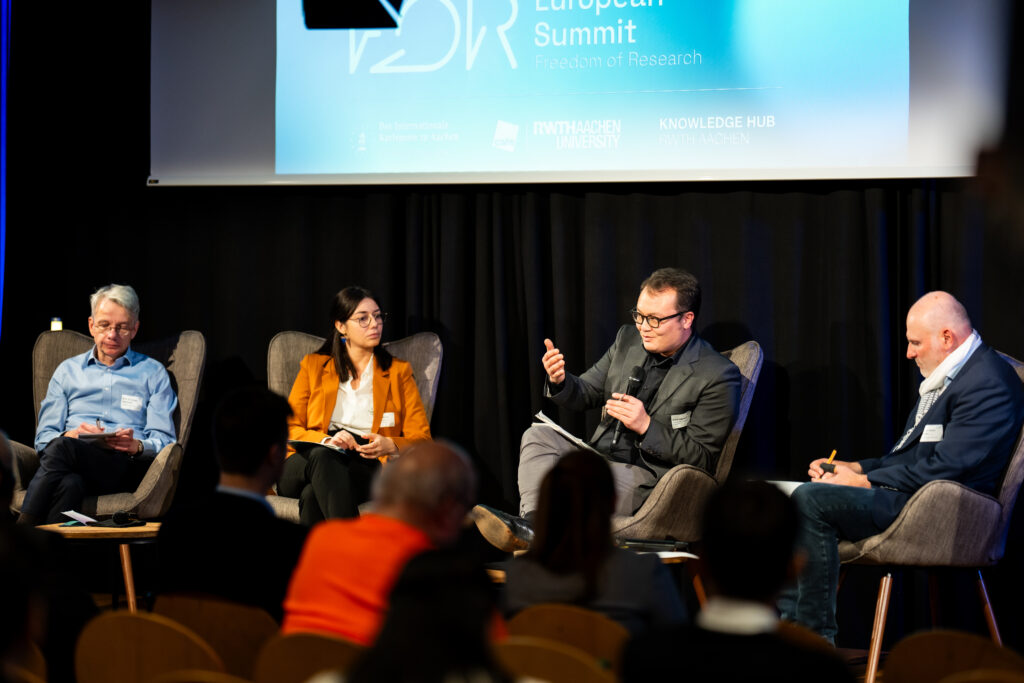
Research as a Basis for European Conflict Resolution
The intersection of academic freedom and conflict resolution was explored in a discussion between Dr Sven Koopmans, EU Special Representative for the Middle East Peace Process, and Drs René van der Linden, former President of the Parliamentary Assembly of the Council of Europe and Dutch diplomat, moderated by Dr Mayssoun Zein Al Din, Managing Director of the North Rhine-Westphalian Academy for International Politics in Bonn. They argued that research is essential for understanding and resolving global conflicts and emphasized the role of the EU as a key player in international peace efforts. The two discussed the challenges of assessing conflicts from a European perspective, particularly the differing opinions of member states, and highlighted the EU’s economic power as a crucial factor in international peace efforts. Dr Koopmans emphasized the importance of an optimistic outlook, stating: “Let’s work on the basis – that there is a peace that we may one day achieve. It maybe sounds very difficult […], but you know: Defeat is not a strategy for success.”
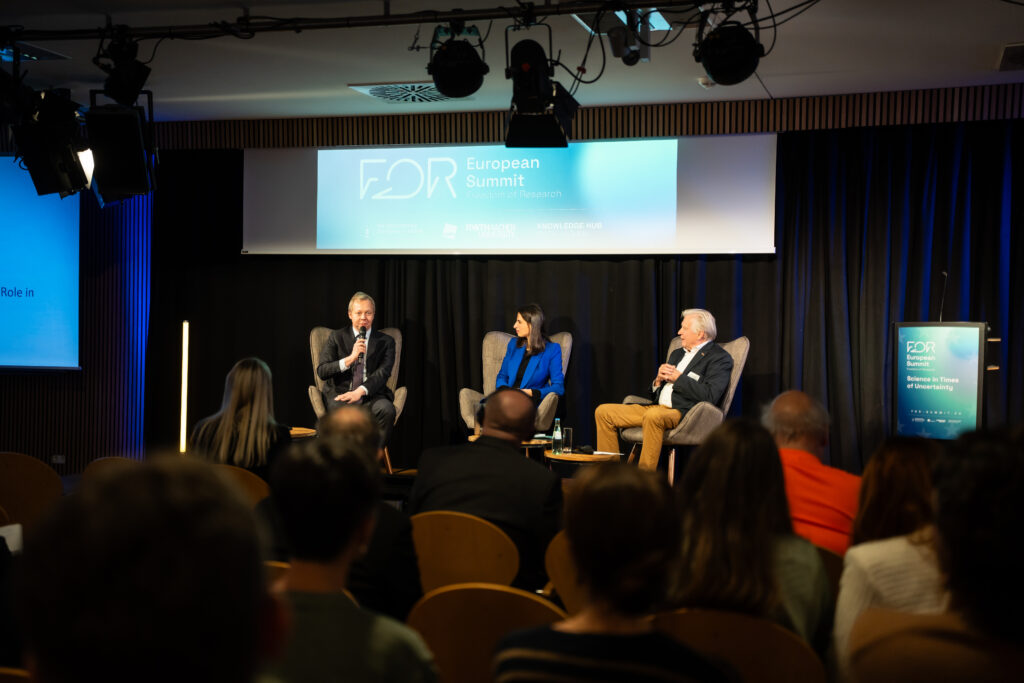
The symposium underlined the critical importance of protecting freedom in research, science, and diplomacy. The discussions made clear that academic freedom is neither given nor a permanent state; rather, it requires continuous vigilance and proactive efforts to preserve. The collective message from the symposium reinforced that science in times of uncertainty can be navigated through regulation and governance for innovation, a strong European and international academic community, and independent universities as safe places to ensure the future of a democratic, secure and progressive Europe.
Photo Credits: Christian van’t Hoen



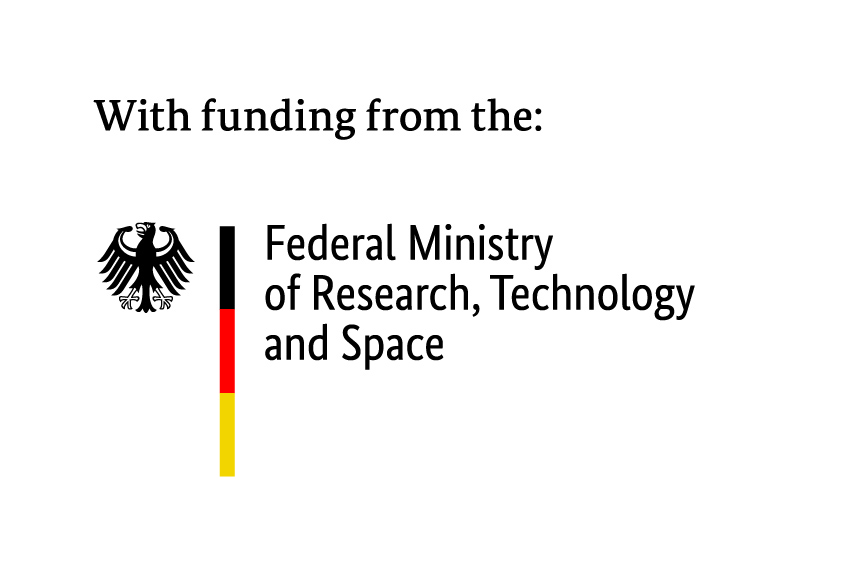
Pingback: “The question of academic freedom acts as a seismograph for current processes of change in the production of scientific knowledge” – Interview with Gabriele Gramelsberger and Stefan Böschen
Pingback: Freedom of Research Summit: Call for Contributions